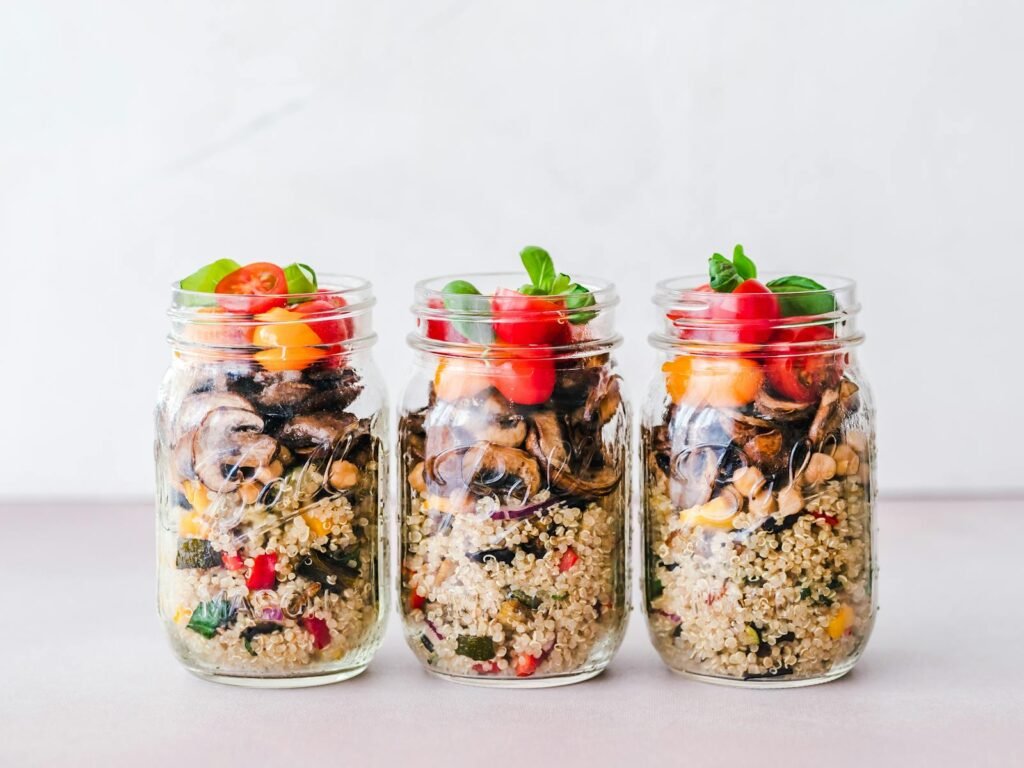The holiday season can bring joy, but it also often brings stress and worry. Many people feel holiday anxiety during this time. You might worry about money, family issues, or having too much to do. These feelings are normal and very common. You can take steps to cope with holiday anxiety and improve your mental health. There are simple ways to feel better and enjoy the season more. Taking care of yourself is key. This means getting enough sleep, eating well, and making time to relax.
It’s okay to say no to some things. You don’t have to go to every party or buy gifts for everyone. Setting limits can help you feel less stressed. Remember, it’s fine to ask for help when you need it. Talking to friends or family about your worries can make a big difference. There are also ways to manage stress that work well during the holidays.
Understanding Holiday Anxiety
Holiday anxiety affects many people. It can make a joyful time stressful. Knowing the signs and causes helps manage it better.
Recognizing the Symptoms
Holiday anxiety shows up in different ways. You might feel worried all the time or have trouble sleeping. Some people get headaches or stomach aches. Others feel tired or cranky.
You may avoid social events or feel nervous around others. Racing thoughts about holiday tasks are common. Some people eat too much or too little. Panic attacks can happen too.
Watch for changes in your habits. You might drink more alcohol than usual. Or you may shop too much to feel better. These can be signs of anxiety.
Exploring the Causes
Many things can cause holiday anxiety. High expectations often play a big role. You might feel pressure to create perfect celebrations.
Family issues can make things hard. Old conflicts may come up again. Some people feel lonely, even at parties. Missing loved ones can cause sadness.
Money worries are another big cause. Gifts, travel, and parties cost a lot. This can lead to stress about spending.
Time pressure is also tough. You might feel rushed trying to do everything. Work, family, and holiday tasks can pile up. This leaves little time to relax.
Cope with Holiday Anxiety
Dealing with holiday anxiety takes planning and self-care. Here are some helpful ways to manage stress during this busy time.
Planning Ahead for the Season
Start early to avoid last-minute rushes and help cope with holiday anxiety. Make a list of gifts, decorations, and events you want to include. Set a budget for holiday spending to avoid financial stress later.
Plan your meals and shop ahead for ingredients. This saves time and prevents grocery store chaos. Book travel arrangements early if you’re visiting family.
Schedule time for self-care activities like exercise or relaxation. Put these in your calendar just like other commitments.
Consider which traditions are most meaningful to you. It’s okay to let go of activities that cause more stress than joy.
Setting Realistic Expectations
Accept that things may not go perfectly. Your holiday doesn’t need to look like a movie or magazine spread. focus on what matters most to you and your loved ones.
Be honest about what you can handle. It’s okay to say no to some invitations or requests. Your mental health is important.
Acknowledge your feelings if you’re missing someone or feeling down. These emotions are normal and valid.
Prepare for family dynamics that might be challenging. Have a plan for how you’ll respond to difficult situations or conversations in order to cope with holiday anxiety.
Remember that others are also under stress. Try to be patient and understanding with yourself and those around you.
Finding Support and Connection
Reach out to friends or family when you need to talk. Share your concerns and ask for help if you need it. You don’t have to do everything alone.
Consider joining a support group or talking to a therapist. They can offer coping strategies for managing anxiety.
Look for ways to connect with your community. Volunteer work can boost your mood and provide perspective.
Try to maintain healthy habits. Regular exercise, good sleep, and balanced meals can help you feel better.
Take breaks when you need them. Step outside for fresh air or find a quiet spot to recharge during busy gatherings.
Maintaining Physical and Emotional Health
Taking care of your body and mind is key to managing holiday stress. By focusing on self-care, mindfulness, and staying active, you can boost your well-being during this busy time.
The Importance of Self-Care
Self-care is not selfish. It’s a must for your health, especially during the holidays. Make time for activities that bring you joy and help you recharge. This could be reading a book, taking a warm bath, or chatting with a friend.
Don’t forget about sleep. Aim for 7-9 hours each night. Good sleep helps your body and mind cope with stress.
Be kind to yourself. Practice self-compassion by treating yourself as you would a good friend. Remember, it’s okay to say no to events or tasks that feel overwhelming.
Try to eat well, even with all the holiday treats around. Pay attention to how foods make you feel. Eating mindfully can help you enjoy meals more and avoid overindulging.
Engaging in Mindfulness and Relaxation
Mindfulness can ease holiday anxiety. It means paying attention to the present moment without judgment. You can practice mindfulness anytime, anywhere.
Try this simple exercise: Take three deep breaths, focusing on the air moving in and out. Notice how your body feels. This can help calm your mind when things get hectic.
Meditation is another great tool. Start with just 5 minutes a day. Sit quietly and focus on your breath. When your mind wanders, gently bring it back.
You might also like yoga. It combines movement, breathing, and mindfulness. Even a short session can help you feel more centered and less stressed.
Remember, relaxation looks different for everyone. Find what works for you, whether it’s listening to music, drawing, or taking a walk in nature.
Staying Active and Healthy
Exercise is a powerful stress-buster. It releases feel-good chemicals in your brain and can improve your mood. Aim for 30 minutes of activity most days.
You don’t need to hit the gym. Dancing to holiday music, taking a brisk walk, or building a snowman all count. The key is to move your body in ways you enjoy.
Try to stick to your usual healthy habits. It’s okay to enjoy holiday treats, but balance them with nutritious foods. This can help you feel your best.
Stay hydrated. Sometimes thirst can feel like hunger or fatigue. Drink water throughout the day, especially if you’re enjoying holiday drinks.
Remember, small steps count. Even a 10-minute walk or stretch break can make a difference in how you feel. Be proud of any healthy choices you make during this busy season.
Leveraging Positive Strategies Throughout the Holidays
The holidays can be tough, but you can make them better. Try new ways to handle stress, set limits, and create fun traditions. These ideas can help you enjoy the season more.
Embracing Imperfection and Letting Go
It’s okay if things aren’t perfect. You don’t need to have the best decorations or throw the fanciest party. Try to focus on what really matters to you.
Make a list of your top priorities for the holidays. Maybe it’s spending time with family or helping others. Stick to these goals and let the rest go.
If something doesn’t go as planned, take a deep breath. Remember that small mishaps won’t ruin the whole season. Laugh off the burnt cookies or the tangled lights. These moments can even become funny stories later.
Setting Boundaries with Social Media and Holiday Events
It’s easy to get caught up in what others are doing. But too much social media can make you feel bad. Set a daily time limit for scrolling. Use that extra time to do something you enjoy.
Learn to say no to events that stress you out. You don’t have to go to every party or gathering. Pick the ones that mean the most to you. For the rest, send a nice message instead.
Make a schedule that includes downtime. Block out periods for rest and your regular routines. This can help you feel more balanced and less overwhelmed.
Creating Meaningful Holiday Traditions
Start new traditions that fit your values and lifestyle. These can be simple things that bring you joy. Maybe it’s watching a favorite movie or making a special meal.
Get others involved in planning activities. Ask family or friends what they’d like to do. This can make everyone feel included and excited.
Try giving back to your community. Volunteer or donate to a cause you care about. This can add meaning to your holidays and help you feel connected to others.
Remember to keep some of your everyday habits. Go for walks, read books, or practice a hobby. These familiar activities can be comforting during a busy time.
Frequently Asked Questions
Holiday anxiety can be challenging, but there are many effective ways to manage it. These questions address common concerns and provide practical solutions to help you cope during the festive season.
How can one cope with holiday anxiety?
You can manage holiday anxiety by practicing deep breathing exercises and mindfulness. Try the 4-4-4 breathing technique to calm your mind. Set aside time each day for relaxation activities like reading, taking a bath, or going for a walk.
Make a list of tasks and prioritize them. This can help you feel more in control and less overwhelmed. Don’t be afraid to say no to extra commitments if they cause too much stress.
What strategies are effective for reducing stress associated with family gatherings?
Set clear boundaries with family members about your time and energy. Communicate your needs and limits openly. Plan short breaks during gatherings to recharge, like taking a brief walk or helping in the kitchen.
If certain topics cause tension, have some neutral conversation starters ready. Focus on positive interactions and shared experiences. Remember, it’s okay to limit your time at events if needed.
In what ways can an individual address symptoms of anxiety and depression during festive periods?
Maintain your regular self-care routines, like exercise and healthy eating. Holiday stress can trigger mental health issues, so stick to your usual sleep schedule as much as possible.
Reach out to a trusted friend or therapist if you’re struggling. Consider joining a support group or using online mental health resources. Remember that it’s normal to have mixed feelings during the holidays.
Why might individuals experience heightened levels of stress and anxiety during the holidays?
The holidays often bring increased social obligations, financial pressures, and family expectations. You might feel overwhelmed by the need to create “perfect” celebrations or buy the right gifts.
Past experiences or grief can also intensify emotions during this time. The contrast between festive cheer and personal struggles can make some people feel more isolated or anxious.
How does one differentiate between common holiday stress and more serious mental health concerns?
Common holiday stress usually eases once the season ends. If your anxiety interferes with daily life, persists after the holidays, or includes symptoms like panic attacks or constant worry, it may be a more serious issue.
Pay attention to changes in sleep, appetite, or mood that last more than two weeks. If you’re unsure, consult with a mental health professional for an assessment and guidance.
What are some methods to cope with the desire to prematurely end a holiday due to anxiety?
Create a comfort kit with items that help you feel calm, like favorite snacks, music, or photos. Use grounding techniques to stay present, such as naming five things you can see, four you can touch, three you can hear, two you can smell, and one you can taste.
Establish a daily check-in with a supportive person back home. This connection can provide reassurance. Remember that it’s okay to adjust your plans if needed to manage your anxiety.





